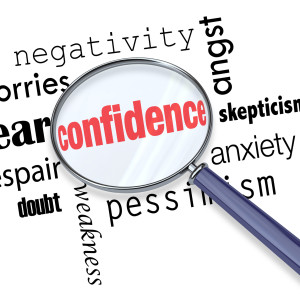By definition, when someone has a low personal evaluation and a less than adequate assumption of their own self-worth, then that person has low self-esteem. How we feel about ourselves and the view of our own self-worth is formed in early childhood and stays with us throughout our life. The initial seeds of our self-esteem are planted by our parents. Our parents have the ability to either provide us with a stable and fortified sense of self-worth, or they can implant a negative and questionable belief in ourselves.
Words Can Be Damaging
Ideally, our parents are the initial source of strength and support in our lives, but too often parents provide a support system founded in negativity. Comments, such as: “you can’t do anything right”, “you’ll never go anywhere in life”, “why aren’t you like so-and-so?” are examples of surprisingly common parental self-esteem signals.
Once we enter adolescence, if negative comments have been a part of our upbringing, then it is hard not to see ourselves in a negative light. Teenagers are the most influenced by the negativity, as they are in the stage of trying to figure out who they are and what their role is in the world. Low self-esteem can manifest itself as having low energy or being unmotivated.
Alcohol and Drugs are Non-Judgmental
It does not take any kind of uniqueness or talent to consume or abuse alcohol and drugs. They are completely accepting of all comers. They will not judge or discriminate. For many people with low self-esteem drugs and alcohol provide the escape from themselves that is necessary, so they do not have to deal with the pain of feeling inadequate and/or less than others.
The Differences Between Confidence and Self-Esteem

Low self-esteem is not the same thing as a lack of confidence. Just because a person may have no confidence in their ability to win a gold medal in the Olympics, write a symphony, or master quantum physics, does not mean they have low self-esteem. Low self-esteem is the innate belief that you will fail, be laughed at or judged, regardless of how well you perform. Failure is the only outcome, so why try at all.
How to Instill Confidence and Positive Self-Esteem
From early childhood, it is important that parents convey a message of positive self-worth to their children. Parents should reinforce the positive development of their children. Using negativity as a motivator will backfire on parents and only to resentment towards the parents and self-doubt in their children.
Parents should work with their children to overcome any negative feelings of inability. If a child truly cannot do something, then it is not an earth shattering event. It is simply something they cannot do. Parents should then refocus their children onto things that they can do. None of us is great at everything, but we are all talented at something or somethings. Parents can help their children find their talents and experience the positive sense of success and accomplishment that supports high self-esteem and pride in one’s self. No matter what your age, a vote of confidence or congratulations on a job well done is always uplifting.
Be a Force for Positivity
All of us can help one another feel better about ourselves or possibly even help reverse feelings of low self-worth in people we know. People are not born with inherently low self-esteem. It is a learned characteristic. The disease of low self-esteem and confidence can infest a person rather quickly, especially, if the negativity is experienced early on in life. Alcohol and drug abuse and addiction are simply outward expressions of self-medication to mask the feelings of self-doubt and low self-worth that lie beneath.


